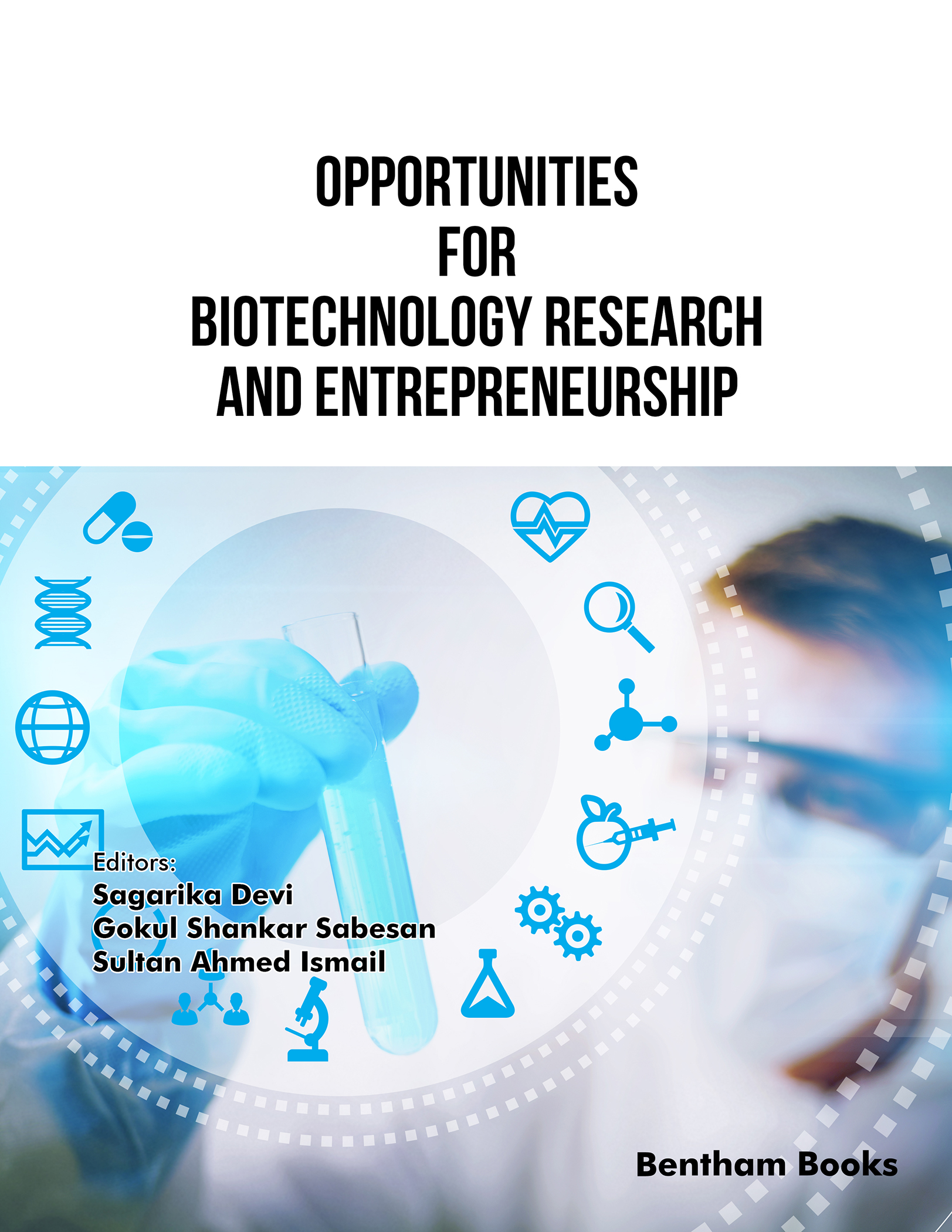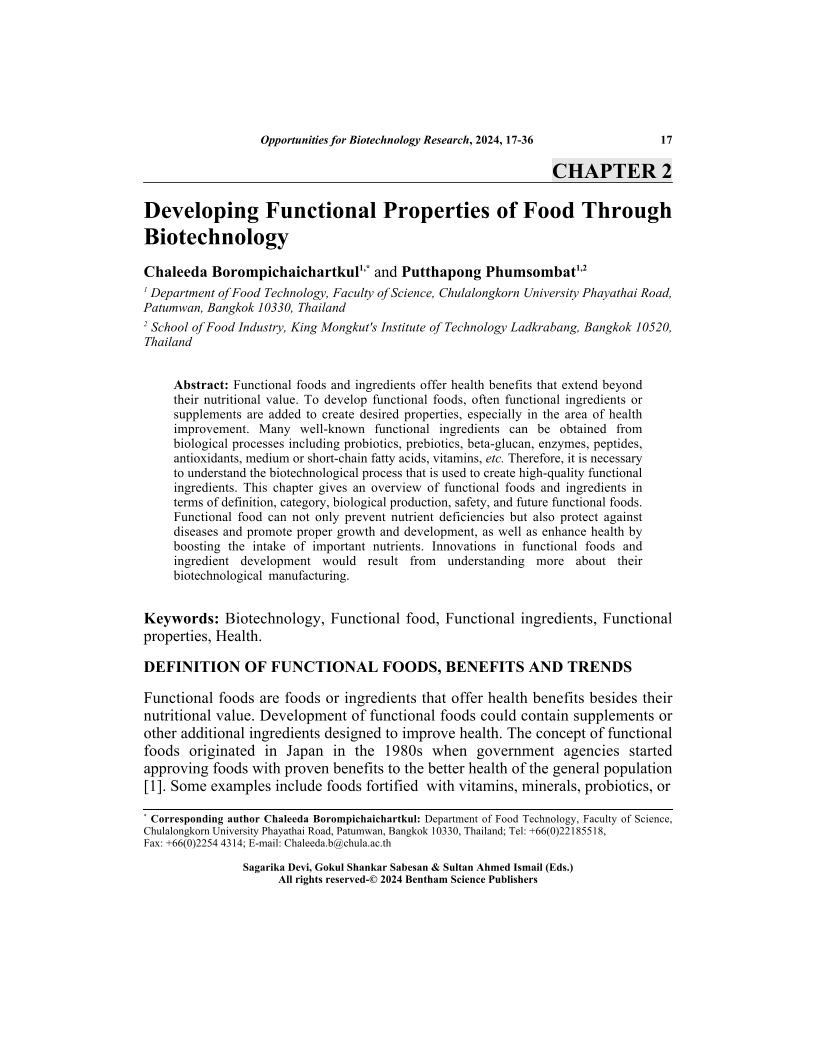Developing Functional Properties of Food Through Biotechnology

- Authors: Chaleeda Borompichaichartkul1, Putthapong Phumsombat2
-
View Affiliations Hide Affiliations1 Department of Food Technology, Faculty of Science, Chulalongkorn University Phayathai Road, Patumwan, Bangkok 10330, Thailand 2 Department of Food Technology, Faculty of Science, Chulalongkorn University Phayathai Road, Patumwan, Bangkok 10330, Thailand
- Source: Opportunities for Biotechnology Research and Entrepreneurship , pp 17-36
- Publication Date: May 2024
- Language: English
Developing Functional Properties of Food Through Biotechnology, Page 1 of 1
< Previous page | Next page > /docserver/preview/fulltext/9789815196115/chapter-2-1.gif
Functional foods and ingredients offer health benefits that extend beyond their nutritional value. To develop functional foods, often functional ingredients or supplements are added to create desired properties, especially in the area of health improvement. Many well-known functional ingredients can be obtained from biological processes including probiotics, prebiotics, beta-glucan, enzymes, peptides, antioxidants, medium or short-chain fatty acids, vitamins, etc. Therefore, it is necessary to understand the biotechnological process that is used to create high-quality functional ingredients. This chapter gives an overview of functional foods and ingredients in terms of definition, category, biological production, safety, and future functional foods. Functional food can not only prevent nutrient deficiencies but also protect against diseases and promote proper growth and development, as well as enhance health by boosting the intake of important nutrients. Innovations in functional foods and ingredient development would result from understanding more about their biotechnological manufacturing.<br>
-
From This Site
/content/books/9789815196115.chapter-2dcterms_subject,pub_keyword-contentType:Journal -contentType:Figure -contentType:Table -contentType:SupplementaryData105

